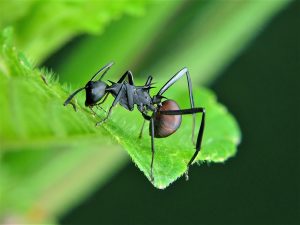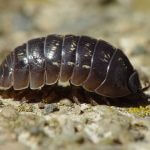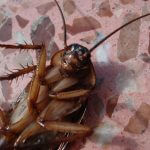Wacky Pest Wednesday: Carpenter Ants
 Happy Wednesday, Tri-County Pest Control fans, and welcome to our latest edition of Wacky Pest Wednesday. Please join us today as we go over a pretty wacky critter: the carpenter ant!
Happy Wednesday, Tri-County Pest Control fans, and welcome to our latest edition of Wacky Pest Wednesday. Please join us today as we go over a pretty wacky critter: the carpenter ant!
At first glance, you may think that carpenter ants are pretty similar to regular ants, and you would be correct. Anatomically, the critters are basically the same, but they behave in incredibly different ways. First, let’s talk about their nesting. For a regular ant, they’ll live in colonies which they’ve made for themselves out of mounds of dirt. However, the carpenter ant will chow through all sorts of different kinds of wood to make a nest for themselves, which is why they are such a formidable pest. Just like termites, they have no problem eating through the foundation of your home if it means that they can make a nest out of it. In a similar vein, regular ants will just scavenge around for crumbs as a source of food, whereas carpenter ants have been known to farm aphids for themselves. No, they don’t farm them to eat them, but they farm them to drink the sweet liquid that aphids release called “honeydew.” How’s that for wild?
If you don’t think that that’s crazy enough, some species of carpenter ants have taught themselves to literally explode. In a phenomenon known as autothysis, a carpenter ant can force its guts to come out of their skin as a method of last defense. Since these innards are toxic, many critters have learned to stay away from carpenter ants, and others certainly think twice before antagonizing them. Yet, no need to fret—these exploding ants are only found in Southeast Asia, and their cousins over here in the states pose no threat to blow up.
As the icing on the cake, carpenter ants have been known to be a common source of food around the world. In Australia, carpenter ants as a treat consumed by the Aboriginals, whereas in the old logging days in Maine, loggers would snack on carpenter ants to prevent scurvy. While we are hesitant to try them as a snack ourselves, they have certainly proved themselves to be a good source of protein around the globe!
Enjoy your Wednesday!




